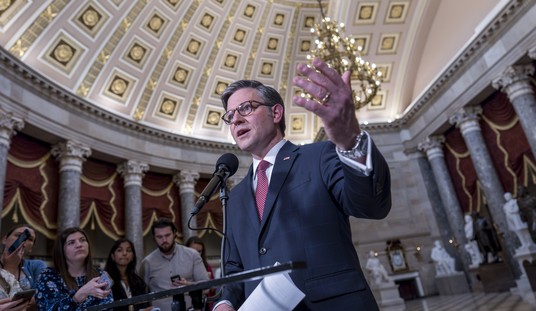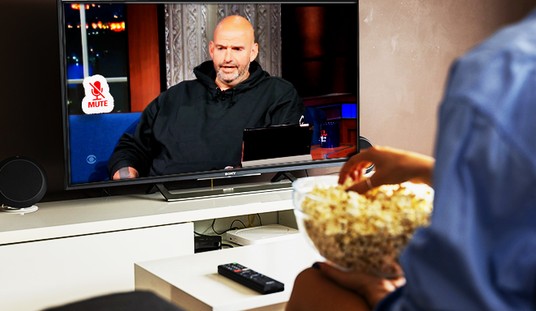The debate about the pull that wealthy donors have in politics is taking center stage on the Senate floor this week as Democrats push a constitutional amendment that would give lawmakers more leverage to restrict campaign financing and spending…
The bill, sponsored by Sen. Tom Udall (D-N.M.), says that Congress and the states can “set reasonable limits on the raising and spending of money by candidates and others to influence elections.” It also gives federal and state authorities the power to prohibit election spending by corporations, which was permitted by Citizens United…
If Congress doesn’t act to reverse the Supreme Court decision, “The only people that would have a vote are these megabillionaires who are trying to buy our country,” he said. “They are trying to buy America, at every level of government. Why? Because they want to make more money.”
Democrats see electoral benefits in their proposal, pointing to Democratic-commissioned polls in battleground states that show bipartisan majorities in support of limiting big donors’ influence in politics and in opposition to Super PACs. Party leaders and aides believe their campaign finance proposal is popular and places the GOP on the wrong side of public opinion — so some Democratic aides said they were happy for the debate to consume the Senate this week and still plan to hold votes on raising the minimum wage and pay equity before breaking for campaign season.
“They’re volunteering to defend the Koch brothers and a campaign finance system voters hate,” said one Senate aide.
Sen. Sheldon Whitehouse also pointed to the Koch Brothers as a reason for amending the Constitution, and accused them of coercing Republicans into giving up on climate change legislation. Before Citizens United, the Republicans had a candidate for president willing to have a climate change plan, he said, and brought a carbon regulations bill to the Senate floor. But now “the Koch brothers, the biggest polluters in this country have gotten together, and they’ve silenced them.”
“That is not adding to debate,” he continued. “That is not adding to democracy. That is the force of money, as bullying as coercion, as bribery, as influence peddling in all the wrong ways. It is not freedom of speech. It is not the first amendment.”
No single issue is more important to the needs of average Americans. If we cannot control billionaires’ power to buy elections, the people elected to office will be responsive to the needs of the rich and powerful, rather than the needs of everyone else.
When the Supreme Court says, for purposes of the First Amendment, that corporations are people, that writing checks from the company’s bank account is constitutionally protected speech and that attempts to impose reasonable restrictions on campaign ads are unconstitutional, our democracy is in grave danger…
On Monday, we will vote on our constitutional amendment on campaign finance reform. But we won’t stop there. We must develop an unprecedented grass-roots movement in all 50 states to make it clear to Congress and the Supreme Court that buying of elections is not what American democracy is all about.
The Democrats insist that this is all about keeping corporations from having too much influence on political discourse — a problematic enough assertion in and of itself; who are they to decide when somebody has too much free speech? — but they fail to deal with the fact that, under the law, there is no constitutional difference between Chevron and the New York Times Company — a corporation is a corporation is a corporation. Nonprofit corporations will fall under the same shadow. The proposed amendment would allow Congress to forbid not only financial contributions to political causes but also “in kind” contributions, which could mean anything from volunteer door-knocking to sympathetic television coverage to the endorsement of the Washington Post.
The Democrats claim that once they have hobbled the First Amendment they will use their newfound powers only to restrict the wrong sort of corporation, not to suppress media companies. But that’s a dodge, too. As noted, current law makes no distinction between media corporations and other kinds of corporations; creating that distinction, which Congress would of course have to do if it wants to apply one set of rules to General Electric and another to Disney, would be indistinguishable from federal licensing of news outlets, i.e. the repeal of fundamental, centuries-long First Amendment protections. If you have to have government permission to engage in free speech, you don’t have free speech.
The Democrats, keenly appreciating the boobishness of their voters, present this as a measure to regulate “corporations,” but the amendment explicitly empowers Congress to regulate individuals as well. As for those corporations: The New York Times is a corporation; ABC News is part of a corporation; NPR is a corporation; Random House is a corporation; Gawker is a corporation; National Review is a corporation. Neither the First Amendment nor any substantive body of American jurisprudence distinguishes media corporations from other sorts of corporations, nor should it. Freedom of speech and freedom of the press are not restricted to journalists and newspaper publishers. The same First Amendment that protects Scott Pelley protects Noam Chomsky and you, in exactly the same way.
It is worth reiterating that for all of the apocalyptic talk about all-powerful corporations, the Citizens United decision was at its heart about the fact that the government sought to make it a crime to show a film critical of Hillary Clinton at a time when she was running for office. The First Amendment plainly does not allow this, and the Supreme Court said as much. A First Amendment that does not protect criticizing political figures is not a First Amendment at all.
The critics also ignore that Citizens United and McCutcheon make it easier for the unions on which the Democrats rely to spend money on elections. Unions outspent businesses by more than 2 to 1 in 2013. If money corrupts, then one would expect Mr. Reid and his colleagues to condemn the “corrupt” influence of unions in politics. And these Democrats presumably would brand liberal billionaire Tom Steyer’s pledge to commit his political-action committee to spend $100 million to defeat Republicans in 2014 as especially corrupting—but Mr. Reid has instead welcomed the support.
Democrats claim that the Supreme Court has made politicians and political parties less accountable by encouraging donations involving outside interest groups. Outside of what? Democrat fundraising circles? Their actual fear is that less traditional candidates—including outsiders—will have the funding necessary to challenge incumbents in primaries without the blessing of party elders.
It hardly enhances democracy to pine for the days when candidates were chosen by party bosses in secret, rather than by voters presented with candidates expressing a range of political viewpoints. If Democrats are concerned about the vitality of political parties when contending with outside groups, then Democrats should embrace McCutcheon, which enables citizens to increase contributions to parties.
When the Supreme Court finds, for purposes of the First Amendment, that corporations are people, that writing checks from the company’s bank account is constitutionally protected speech and that attempts to impose coercive restrictions on political debate are unconstitutional, we realize that we live in a republic that isn’t always fair but it is, for the most part, always free.
Americans’ right to free speech should not be proportionate to their political power. This is why it’s vital to stop senators from imposing capricious limits on Americans…
On Monday, Democrats offered an amendment to repeal the First Amendment in an attempt to protect their own political power. Whiny Senators — most of them patrons to corporate power and special interests — engaged in one of the most cynical abuses of their power in recent memory. Those who treat Americans as if they were hapless Proles unable to withstand the power of a television commercial are the ones who fear speech. That’s not what the American republic is all about.
What is envisioned here is a society in which only individuals and the state really exist. Groups of people joined together for a common cause are rejected as illegitimate actors in the nation’s public life, so that the only institutions that people can really join in together are government institutions. And the space between the individual and the state — the space in which most of society exists — is taken by the state to be empty of anything meaningful and worthy of protection or, worse, to be infested with vestiges of backwardness, prejudice, and pernicious self-interest that need to be neutralized or co-opted by the government. Those institutions do not have the democratic legitimacy that the government has, so their actions are by definition not public spirited.
This kind of attitude applied to corporations in the marketplace is evident throughout the Obama administration’s economic policy. The same attitude applied to religious institutions is on display in recent battles about the HHS mandate. And with this proposed amendment we see it applied to civic institutions seeking to act in the public square to influence our politics. Such an assault on our mediating institutions is an assault on the very idea of a liberal society. But the people we now call liberals seem genuinely not to see that.
“The idea that elected politicians would seek to arrogate power to themselves to censor the citizens is anathema to who we are as a country.”








Join the conversation as a VIP Member